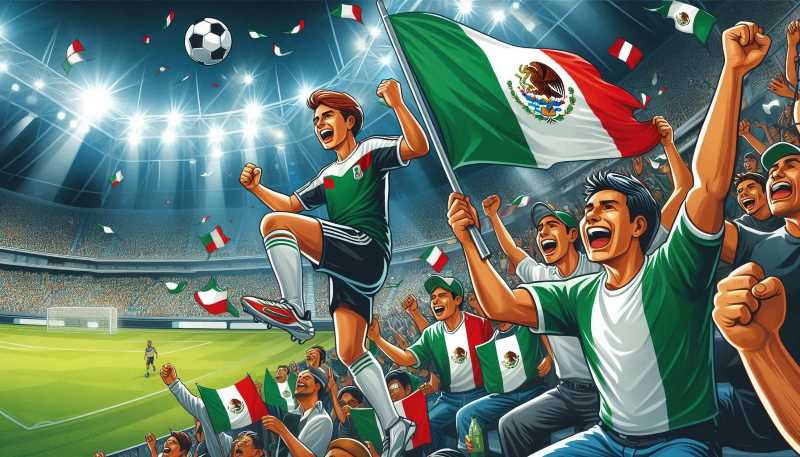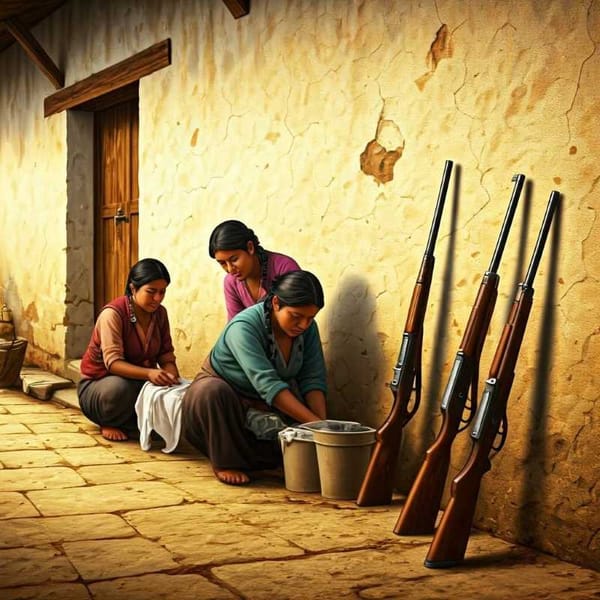Sporting Events Legislative Changes Proposed in Mexico
PVEM deputy María del Rocío Corona Nakamura advocates for a legislative amendment to enhance safety in Mexican sports stadiums. The proposal aims to deter violence, ensure fan integrity, and sustain local economies tied to sporting events through strict penalties and a culture of peace and respect.

In Mexico, where the love for soccer runs as deep as the nation’s rivers, a new chapter in the legal codex is unfolding. María del Rocío Corona Nakamura, a determined deputy of the PVEM, stands as a sentinel for the safety of fans who flock to stadiums, heralding an initiative that promises to transform the sporting experience in the country. With the backing of the Federal Penal Code, she proposes peace and security in a realm often marred by the specter of violence.
To grasp the significance of this initiative, one must first understand the sheer magnitude of soccer's influence in Mexico. A staggering 78 percent of Mexicans are self-proclaimed soccer aficionados, with 28 percent having felt the electrifying pulse of a live match at least once. These statistics are not just numbers; they are the heartbeat of a nation. The tragic events of March 5, 2022, at the Corregidora Stadium in Querétaro serve as a somber reminder of the perils that can arise when the passion for the sport turns destructive.
Sporting events are more than mere entertainment; they are economic engines that fuel local economies, providing jobs and income to countless families. From the vendors selling snacks and memorabilia to the local businesses that thrive on game days, soccer's economic ripple effect is profound. Therefore, it is not just a matter of sport, but a matter of livelihood, compelling the government to act decisively to ensure these events remain safe and enjoyable for all.
Corona Nakamura's proposal is as comprehensive as it is ambitious. At its core is the principle of a "culture of peace and respect," a mantra to be adopted by authorities, spectators, and participants alike. This culture would permeate every facet of sporting events, governing conduct and ensuring that tolerance and security prevail.
To achieve this, the initiative classifies sporting events into three risk categories: high, medium, and low. This classification would be based on various factors including location, venue, schedule, and the nature of the sport. For high- and medium-risk events, mobile units of the Public Ministry would be stationed nearby, ready to address any criminal activity promptly.
The initiative outlines strict penalties for those who breach this culture of peace. Bringing weapons or dangerous objects into a stadium, participating in fights, or inciting violence could result in imprisonment for one to six years, along with hefty fines. More severe infractions, such as causing injury, could lead to sentences ranging from six months to ten years, depending on the severity and impact of the offense.
Even behaviors that might seem minor in isolation, such as attending a game under the influence of narcotics or displaying inflammatory symbols, are addressed. The proposal envisions a broad sweep of sanctions to curb all forms of violence and misconduct, reinforcing the sanctity of the sporting environment.
The initiative is not just about punitive measures; it aims to foster a paradigm shift in how sporting events are perceived and experienced. By promoting a culture of peace, the hope is to create an environment where the love for soccer can be celebrated without fear, where families can enjoy the thrill of the game without the shadow of violence looming overhead.
In conclusion, María del Rocío Corona Nakamura’s initiative is a sign of reassurance for soccer fans across Mexico. It is a clarion call for safety, respect, and peace in a context that encapsulates the spirit of the nation. As the proposal makes its way through the legislative corridors, one can only hope that it will usher in a new era for Mexican soccer, where the only battles fought are those on the field, and the only victories celebrated are those that unite, rather than divide.




